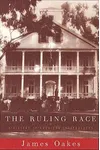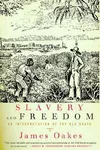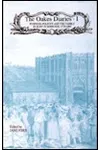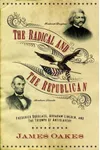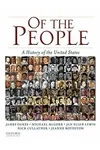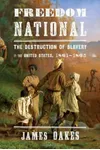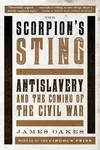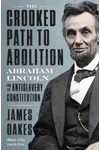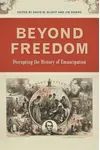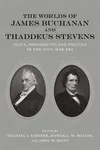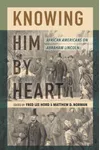Picture an American historian who turned the story of slavery and emancipation into a gripping saga—meet James Oakes! A two-time Lincoln Prize winner, Oakes has spent decades unraveling the complex threads of 19th-century America, from the Civil War to the abolition of slavery. His books, like Freedom National and The Radical and the Republican, don’t just recount history—they reshape how we understand it, blending sharp analysis with a knack for storytelling that captivates scholars and casual readers alike.
Born in the Bronx, Oakes is a Distinguished Professor at the City University of New York’s Graduate Center, where he’s been inspiring students for over 20 years. His work dives deep into the political and social forces that ended slavery, revealing the unsung roles of abolitionists, lawmakers, and everyday people. Ready to step into his world? Let’s explore the life and legacy of this game-changing historian!
The Making of James Oakes
Born on December 19, 1953, in the Bronx, James Oakes grew up in a vibrant, working-class neighborhood. He attended Catholic schools before enrolling at Baruch College, CUNY, where he earned a B.A. in history in 1974. His passion for the past led him to the University of California, Berkeley, where he studied under the legendary Kenneth Stampp, author of The Peculiar Institution. Stampp’s focus on slavery as a brutal institution shaped Oakes’s perspective, sparking a lifelong mission to uncover the truths of America’s darkest chapters.
After earning his Ph.D., Oakes taught at prestigious institutions like Princeton and Northwestern before settling at CUNY’s Graduate Center in 1997. His early career was marked by a relentless curiosity about the South’s slaveholding society, setting the stage for his groundbreaking scholarship. From the start, Oakes wasn’t just writing history—he was challenging long-held assumptions about how slavery ended.
James Oakes’s Unforgettable Works
Oakes’s books are like time machines, transporting readers to the heart of 19th-century America. His first major work, The Ruling Race: A History of American Slaveholders (1982), explored the mindset of slaveholders, revealing how their economic and social power shaped the South. It was a bold debut, blending rigorous research with a narrative flair that made complex history accessible.
In The Radical and the Republican: Frederick Douglass, Abraham Lincoln, and the Triumph of Antislavery Politics (2007), Oakes won his first Lincoln Prize by comparing the fiery abolitionist Frederick Douglass with the pragmatic Lincoln. The book’s fresh framework showed how their unlikely alliance drove the antislavery movement, earning praise for its clarity and insight. His follow-up, Freedom National: The Destruction of Slavery in the United States, 1861–1865 (2012), snagged a second Lincoln Prize. Here, Oakes argued that the Civil War was always about emancipation, not just Union, challenging the idea that Lincoln’s goals shifted mid-war.
More recently, The Crooked Path to Abolition: Abraham Lincoln and the Antislavery Constitution (2023) cemented Oakes’s reputation as a master of antislavery constitutionalism. His style—lucid, argumentative, and deeply human—makes history feel urgent, as if the debates of the 1860s still echo today. Whether dissecting legal nuances or humanizing historical figures, Oakes’s work is a masterclass in making the past matter.
Why James Oakes Matters
James Oakes has done more than write books—he’s reshaped how we see America’s road to freedom. His scholarship dismantles myths, like the notion that emancipation was a sudden shift rather than a deliberate, multifaceted process. By highlighting the interplay of politics, law, and grassroots activism, Oakes has given voice to the countless individuals who fought for abolition. His work has influenced historians like Eric Foner and inspired a new generation to rethink the Civil War’s legacy.
Beyond academia, Oakes’s accessible style has brought history to broader audiences, proving that scholarly rigor can coexist with storytelling magic. His critiques, like those of the New York Times’ 1619 Project, show his commitment to historical accuracy, sparking lively debates that keep his field dynamic. Oakes’s legacy is a reminder that understanding the past equips us to tackle the present.
- Born: December 19, 1953, in the Bronx, NY
- Key Works: The Ruling Race, The Radical and the Republican, Freedom National, The Crooked Path to Abolition
- Awards: Two-time Lincoln Prize winner (2008, 2013)
- Current Role: Distinguished Professor at CUNY Graduate Center
Snag Freedom National or The Radical and the Republican and dive into James Oakes’s riveting take on America’s past. Trust us, you’ll never see the Civil War the same way again!
